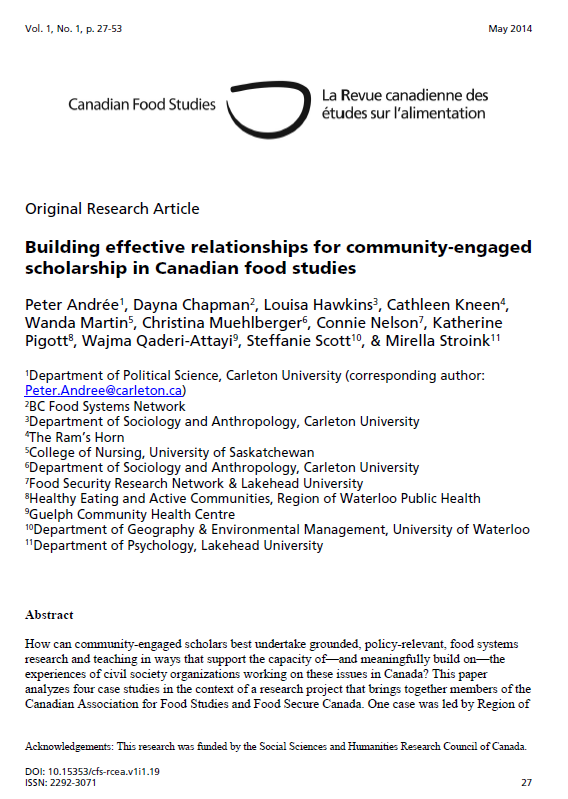In this journal article titled Building effective relationships for community-engaged scholarship in Canadian food studies, the authors take a look at the question of how community-engaged scholars can best conduct research and teach in ways that support their community partners. This article was first published online May 2014 in volume 1(1) of Canadian Food Studies / La Revue canadienne des études sur l’alimentation.
Read the full article by clicking on the image below, or browse through the abstract for more information.
Abstract
How can community-engaged scholars best undertake grounded, policy-relevant, food systems research and teaching in ways that support the capacity of—and meaningfully build on—the experiences of civil society organizations working on these issues in Canada? This paper analyzes four case studies in the context of a research project that brings together members of the Canadian Association for Food Studies and Food Secure Canada. One case was led by Region of Waterloo Public Health and faculty from the University of Waterloo; a second by the Food Security Research Network at Lakehead University in Thunder Bay and the North Superior Workforce Planning Board; a third by the national student organization Meal Exchange and Ryerson University in Toronto; and a fourth by the BC Food Systems Network. We argue that the answer to the question above lies in establishing respectful relationships and recognizing the different cultures involved, and we offer five methodological insights for building effective relationships in practice. The first is the need to disaggregate the concept of ‘community’ in order to acknowledge the distinct needs and assets of the diverse organizations and populations involved. Our second and third insights are linked: Establish the relationship around a shared vision, and then negotiate mutually-beneficial teaching or research projects. Fourth, practitioners should approach community-campus engagement through the framework of contextual fluidity, which includes seeing the relationships and the vision at the heart of the work, while remaining open to shifts and new opportunities. Finally, adopting community capacity building practices helps practitioners realize their shared vision.
